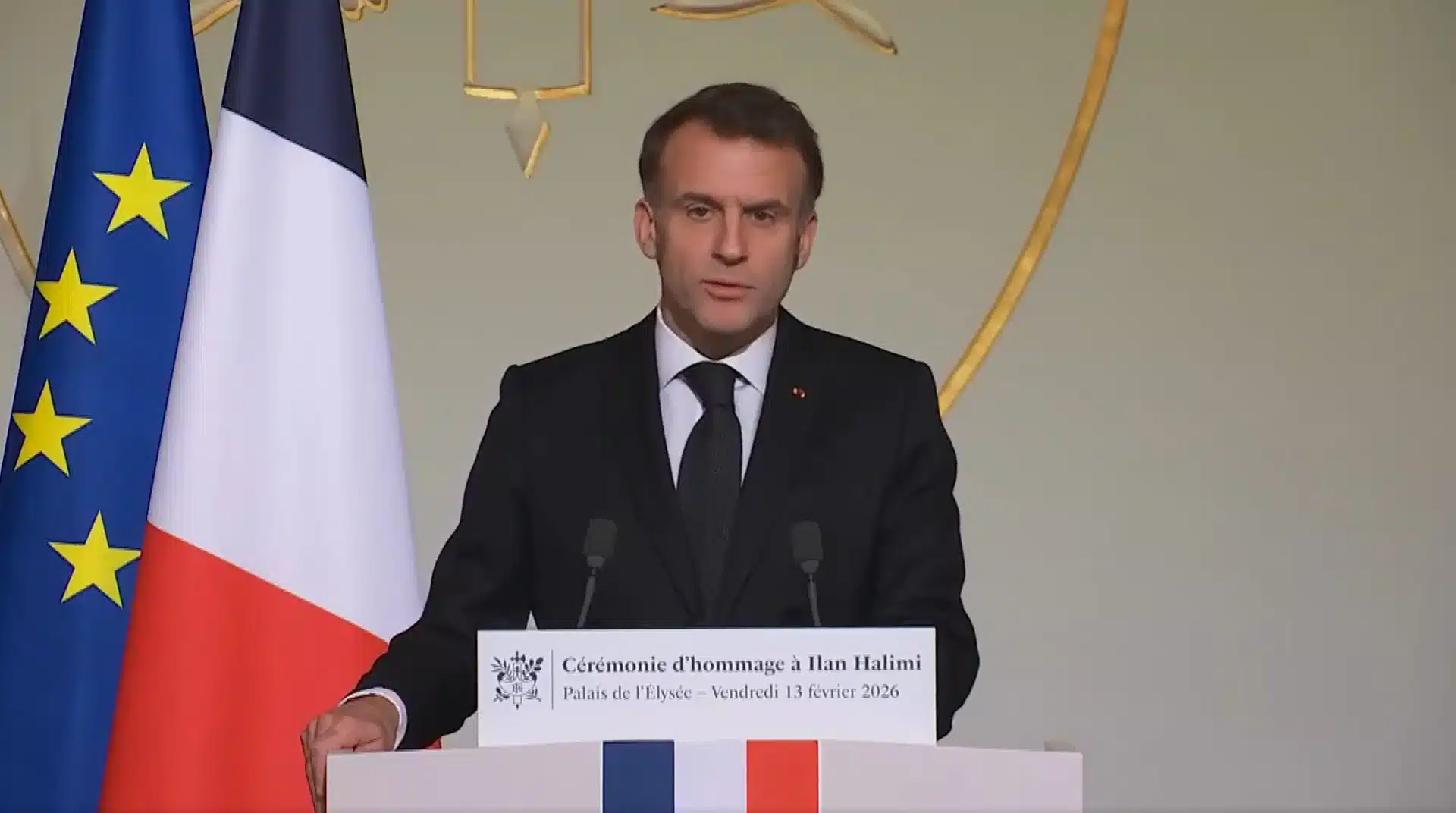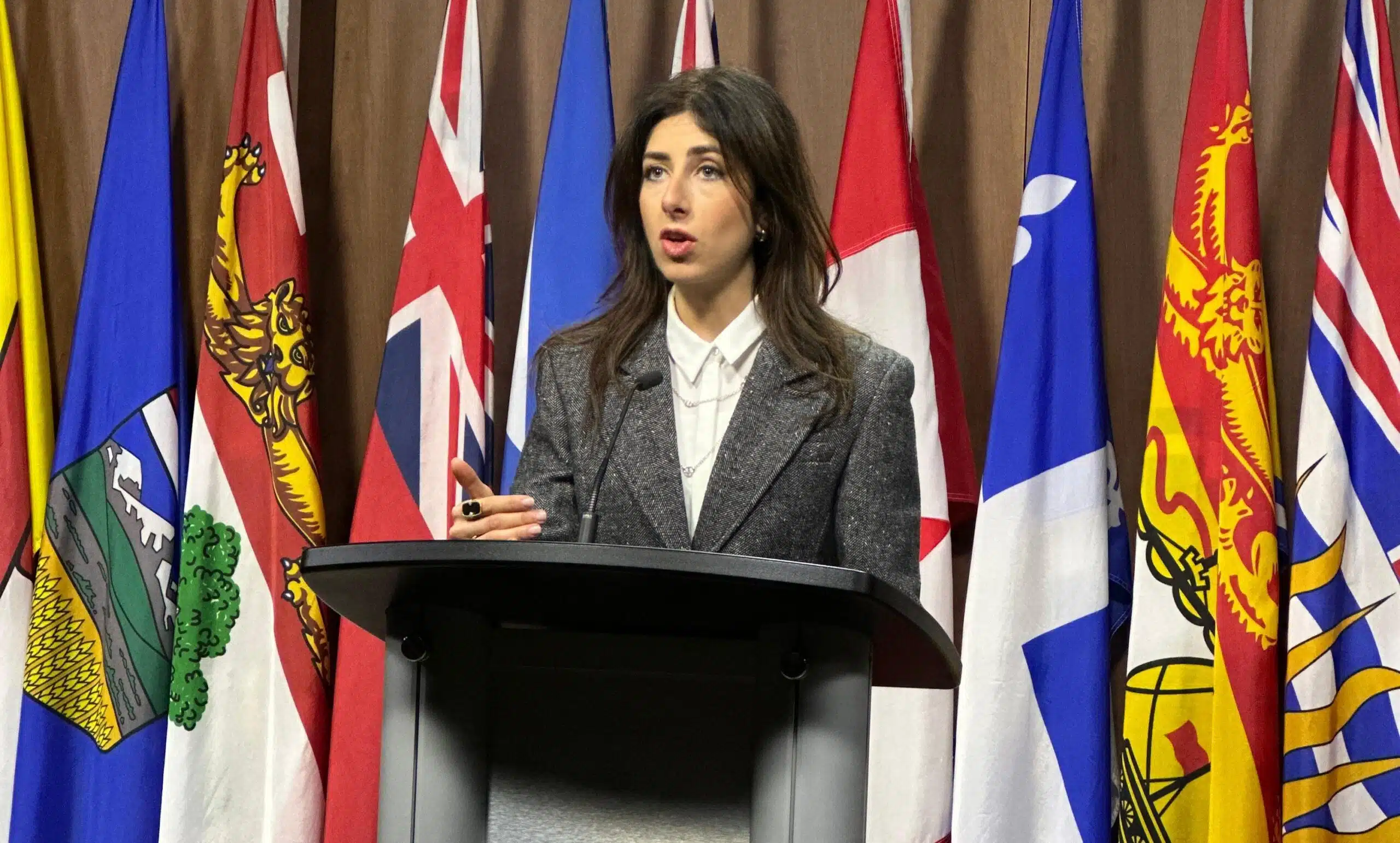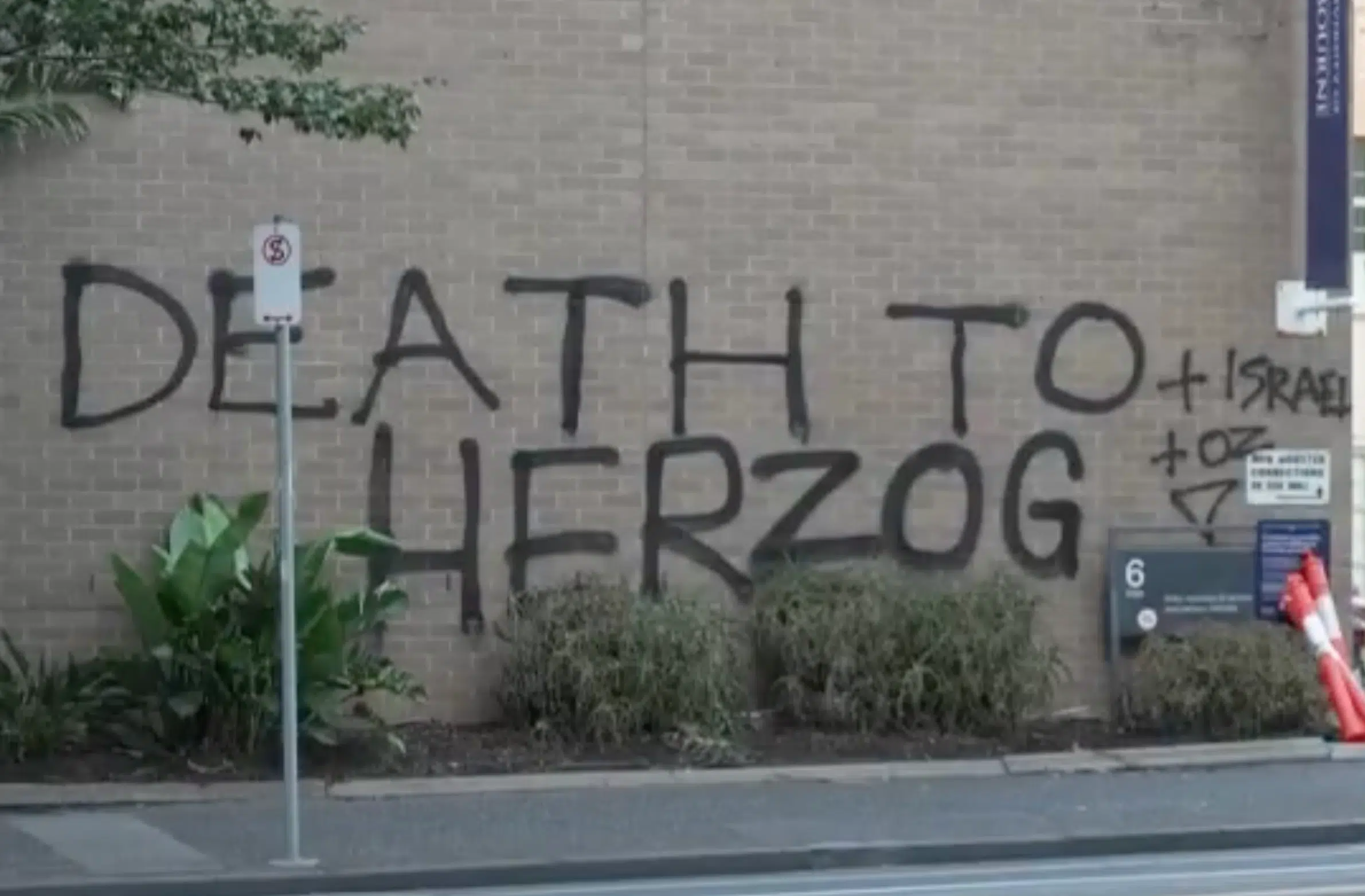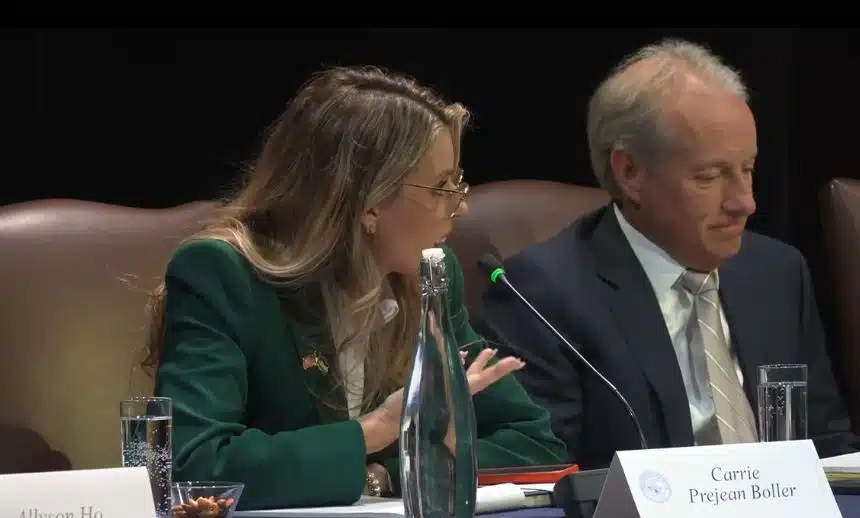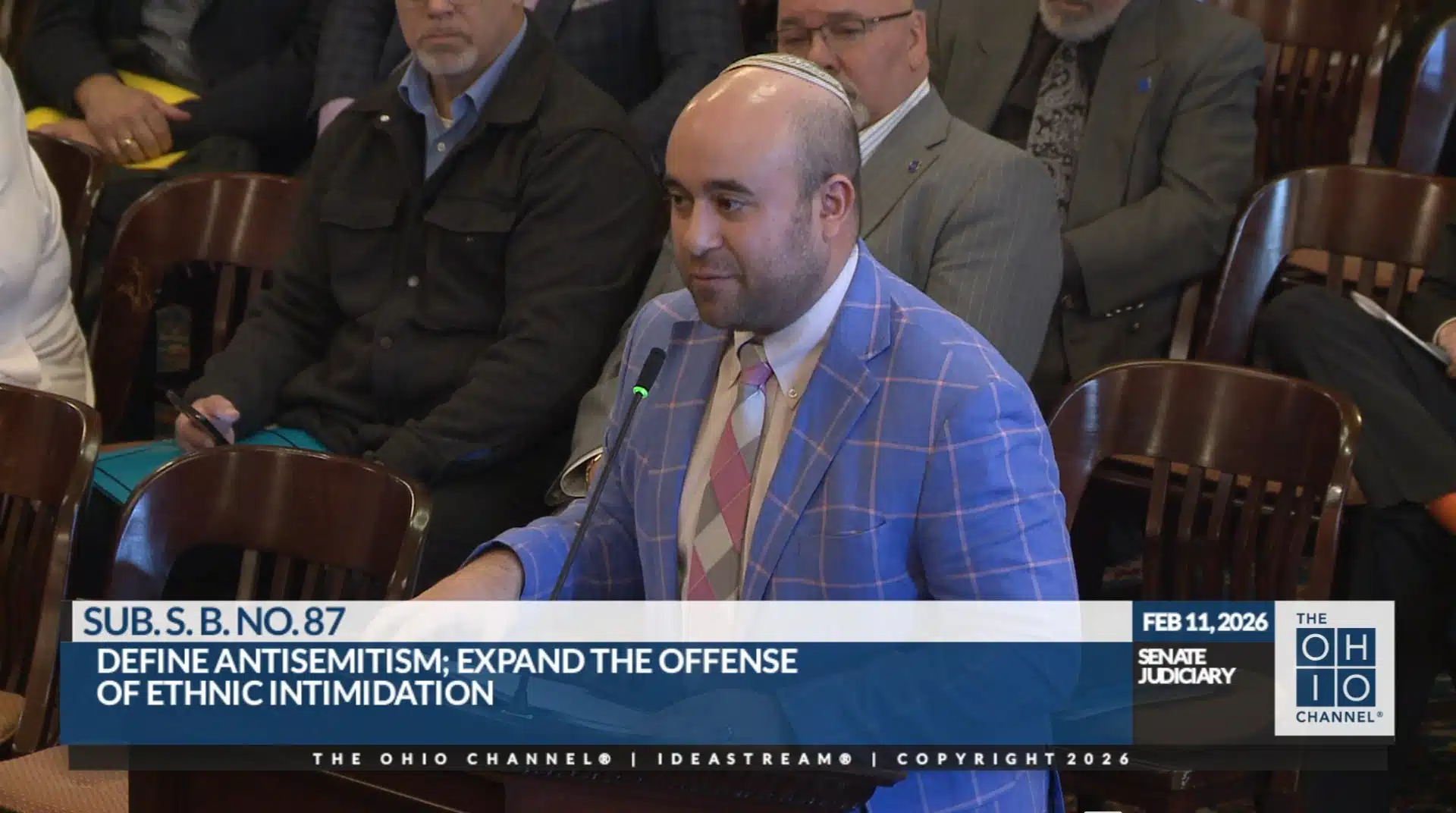
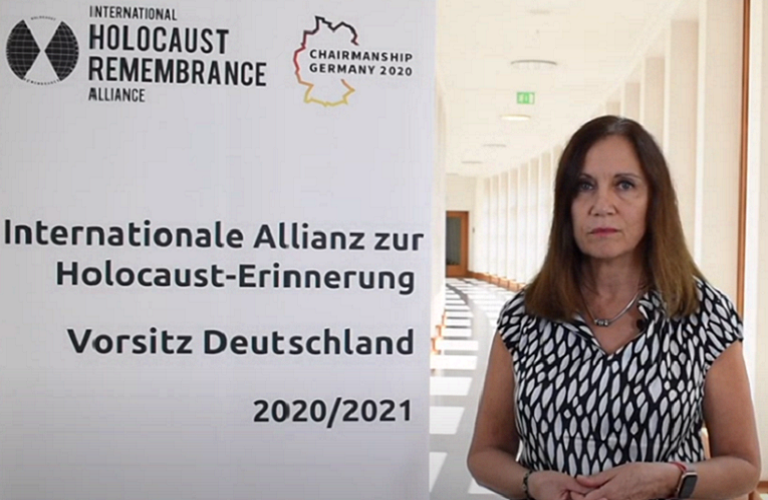
IHRA Chairwoman: Anti-Semitism has Arrived in the Mainstream of our Societies
On September 16th, 2020, IHRA Chairwoman Ambassador Michaela Küchler addressed the Combat Anti-Semitism Movement’s (CAM) groundbreaking studio event, “The IHRA Definition of Anti-Semitism: Eleven Examples, Eleven Stories.” During her appearance at this international forum about the merits of adopting the IHRA definition of anti-Semitism, Ambassador Küchler said, the “IHRA working definition…broadened the discussion about all the various forms of anti-Semitism,” while also leading to “vital debates around how we can identify and most importantly combat anti-Semitism.”
Watch Ambassador Küchler’s full address below.
CAM’s event featured the eleven examples of modern anti-Semitism under the International Holocaust Remembrance Alliance (IHRA) definition alongside eleven corresponding real stories from victims of anti-Semitism, bringing the IHRA definition to life. Ambassador Küchler was joined by a distinguished panel of the world’s top anti-Semitism experts including US Special Envoy for Monitoring and Combating Anti-Semitism Elan Carr, Germany’s Anti-Semitism Commissioner Dr. Felix Klein, UN Special Rapporteur on Freedom of Religion or Belief Ahmed Shaheed and other leaders.
As global chaos fuels a rapid rise in anti-Semitism, each leader demonstrated the need for agreeing upon and working from a universal definition in order to effectively combat anti-Semitic threats from across the ideological spectrum. Alongside the panel of experts, eleven individuals joined the forum to share their personal experiences with anti-Semitism, each representing one of the unique examples under the IHRA definition.
Speaking on the IHRA definition’s importance in the present-day fight against anti-Semitism, Ambassador Küchler warned, “We know that anti-Semitism still exists today, and even more than ever. Even worse, anti-Semitism has arrived in the mainstream of our societies. Anti-Semitism goes hand in hand with hate and racism and should not have any place in our societies. It affects us all and it requires every single one of us to combat it.”
As Jewish organizations and leaders around the world continue to advocate for more widespread adoption of the IHRA definition, some critics have pushed back against its list of modern manifestations of anti-Semitism. Arguing for the working definition’s list of examples, Ambassador Küchler explained, “To those who claim [that the IHRA definition’s 11] examples stifle the debate on how to fight anti-Semitism, I clearly say ‘No, it doesn’t. Actually it does the opposite.’ While people discuss and question these examples, they are giving them attention and deep thought which hopefully will lead to understanding of the numerous and various shapes of anti-Semitism.”
Germany took over the rotating presidency of the International Holocaust Remembrance Alliance (IHRA) in March of 2020. Ambassador Küchler, who serves as the German Foreign Office’s special commissioner for relations with Jewish organizations, was appointed to head the German IHRA team. Upon assuming the leadership of IHRA, Ambassador Küchler specifically emphasized that Germany would focus on combating Holocaust denial and distortion, saying that “it is obvious that this is a significant problem and one we will take even more seriously.” Holocaust denial falls under examples four and five under the IHRA definition.
Germany is also focusing its IHRA chairmanship on education as a tool to foster Holocaust remembrance and to counter modern anti-Semitism. Ambassador Küchler brings extensive international experience from the German foreign service to her role as the Chairwoman of IHRA.
Touching upon Germany’s focus on education in her remarks at the event, Ambassador Küchler said, “Public awareness of this problem clearly has a long way to go. The IHRA working definition of anti-Semitism has the power to serve as a useful education tool in this regard.”
In order for the definition to be utilized as an education tool for wider audiences, the IHRA Chairwoman detailed its practical adoption by many federal and local governments as well as by civil society organizations. “With the agreement of 34 IHRA member countries, they made an unequivocal and powerful statement. Most IHRA countries reinforce their commitment to the definition by adopting it at national, regional or even local levels through government or parliamentary resolutions or city council motions,” the ambassador said.
In the twenty-first century, dangerous anti-Semitic ideologies and incitement spread rapidly on the internet. Acknowledging that social media serves as one of the primary vectors of anti-Semitism in the modern era, the Ambassador urged social media companies to take action. “In order to create broad public awareness, especially social media platforms, both big and small, have to acknowledge their responsibility just like traditional media.”
As the world grapples with a rise in a unique form of anti-Semitism specifically related to the novel coronavirus pandemic, the Ambassador took note of the challenges that this particular type of anti-Semitism currently presents, commenting that, “Especially now – we must ensure that the fight against antisemitism and the education efforts can whether the storm of the pandemic so that our democratic societies can emerge from this challenging time in tact.”
In closing her remarks Ambassador Küchler’s thanked the Combat anti-Semitism Movement for organizing this virtual forum saying, “Together we are strong. Together we declare to fight anti-Semitism wherever it occurs.”



